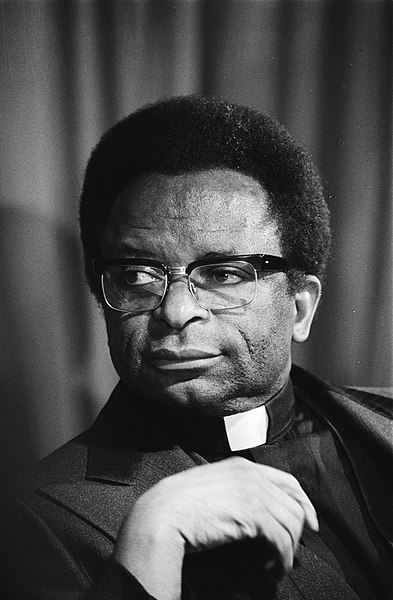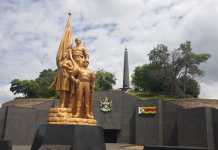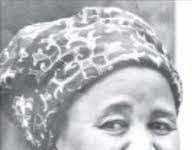Name: Abel Tendekayi Muzorewa
Birth date: 14 April 1925
Death Date: 8 April 2010 (84 years)
Accolades:
- United Methodist Bishop
- Prime Minister of Zimababwe
Commonly referred to as Bishop Muzorewa served as Prime Minister of Zimbabwe Rhodesia from the internal settlement to the Lancaster House agreement in 1979. He was a United Methodist Church Bishop and a nationalist leader. He was born on the 14th of April 1925 in Umtali, Manicaland in Southern Rhodesia (now Zimbabwe). He was the eldest of a lay preacher’s eight children and was educated at the United Methodist School in Old Umtali near Mutare.
During the years 1943 and 1947 he was a school teacher at Mrewa then he became a full time lay preacher from 1947-1949 at Mtoko. Muzorewa studied theology at Old Umtali Biblical College from 1949-1952 and was ordained as a Minister at Umtali in August 1953. Then he became pastor at Chiduku near Rusape from 1955 to 1958.
Muzorewa attended Central College in Fayette, Missouri and then later at Central Methodist University by then he had a wife and three children who lived with him in a prefabricated student housing while his sons attended a segregated school. Muzorewa graduated as a Master of Arts from Scarritt (now a conference center) despite facing segregation due to his color. In July 1963 he became a pastor of Old Umtali and a year later he was appointed National Director of the Christian Youth movement and was seconded to the Christian Council. Muzorewa became Secretary of the Student Christian Movement in 1966 and two years later he was consecrated as the United Methodist Church’s Bishop of Rhodesia at Maseru in Botswana.
In 1971 Muzorewa joined an inexperienced cleric, the Reverend Canaan Banana to form the United African National Council to oppose the settlement under the acronym NIBMAR (no independence before majority rule). Muzorewa found himself a national leader and an international personality when the proposed referendum was withdrawn. On March 3 1978 Muzorewa, Ndabaningi Sithole and non-exiled leaders signed an agreement at Government House, Salisbury which paved way for the interim government. It was an executive council made up of Muzorewa, Sithole and Jeremiah Chirau along with Ian Smith. The council was to run the state of affairs prior to elections taking place. A new constitution was drafted that reserved the white minority 10 seats in the Senate and 28 seats in the House of Assembly and a quarter of the Cabinet positions. The constitution was approved with an overwhelming majority of 85% voting yes. The nearly whites- only referendum took place in January 1979.
The UANC won and Muzorewa became Prime Minister whilst Josiah Gumede became President and the country’s name was changed to Zimbabwe. The internal settlement was also condemned by the United Nations Security Council Resolution 423 of 1978. Muzorewa was persuaded to accept fresh elections to be held early 1980 and his government revoked the UDI on 11 December 1979 and dissolved itself. On 4 march 1980 the elections resulted in a majority win for Mugabe and ZANU while UANC of Muzorewa won only 3 out of 80 seats reserved for Africans in House of Assembly.
In 1983 Muzorewa visited Israel on the 21st of October. He urged Mugabe to establish diplomatic relations, he said his political policies hurt the Zimbabwean agriculture and technology industries. He was arrested on the 1st of November on charges of conspiracy against Mugabe for the South African government. Muzorewa went on a hunger strike from 3 to 11 November 1983. In the presidential election of 1996 Muzorewa stood against Mugabe but pulled out after Supreme Court turned down his bid to postpone the elections on the basis that the electoral rules were unfair. He remained on the ballot and won 4.8% of the popular vote.
Muzorewa died at the age of 84 on the 8th of April 2010 from cancer. He passed away at his home in Harare. He was been described as a man of peace by political commentator John Makumbe. Bishop Muzorewa and his wife are buried at the Old Mutare Mission Station, Mutare Manicaland Province.
By Elizabeth Taderera
Sources: African books; Africa who’s who second edition and wikipedia


























